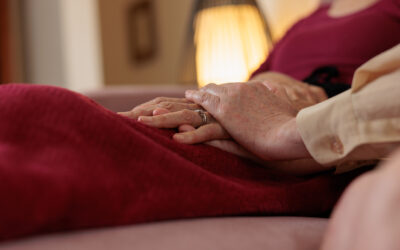It’s not often we speak about the dedication of nurses and carers in residential care homes for elders living with dementia. These unsung heroes work quietly in social care settings with clients who have complex and declining cognitive health and difficult presenting behaviours. Little is known of what they do, how they work and the residents they serve. This is a snapshot of the quality of staff in one residential care home.
Three phone calls alerted me to a medical emergency and near death of my Dad. I was gently summoned to travel as quickly as possible. Unknown to me, the trip provided an opportunity to spend five precious and uninterrupted days with my Dad but more so to observe and be in constant communication with the nurses and carers.
I met the team of women (three African, one Filipino) who had worked tirelessly over two days to clear a serious bronchial infection with congestion in a 95 year old man, my Dad, and if they had not done so, would have resulted in him asphyxiating in his own phlegm.
The team of four women, all had these qualities in common: dedication, warmth, kindness, and total commitment to support my dad through the crisis and beyond.
One night nurse, the first to sound the alarm of an emergency, called the doctor. Her quick response was fundamental to what followed.
Two doctors were called out who assessed, prescribed medication and gave the treatment plan.
In the midst of the emergency one nurse delayed going off shift for two hours, to not leave the night nurse alone with so many other residents to care for.
When the crisis calmed, another nurse on the day shift continued to check on Dad throughout the day. The way she moved, gentle, tender, her voice soothing and compassionate was extra-ordinary. She administered medication and introduced each procedure explaining what she was doing first before she did anything. And when she did it was with an ease and calmness, nothing hurried or forced. She talked to Dad and tenderly stroked his arm as she did. Her presence supported me as well as Dad. At the end of a fourteen-hour shift and even though tired, she came to see us and introduced me to the night nurse I hadn’t met before. Such thoughtfulness was noticed and appreciated.
This night nurse reassured me with these words, ‘Don’t worry we are looking after your Dad, after all he is our Dad as well’.
One carer, from Sri Lanka walked and talked like an angel. New to the role, only three months in, but with an ancient knowing of true care, not drawn from any particular standards or care manual. True care was in his body and flowed naturally to my Dad and myself. This was a man who cared for residents as he would members of his own family. He moved, spoke, fed and held residents tenderly, respectfully and lovingly. This carer connected with my Dad, even though Dad had no sight, limited speech and was at times difficult to understand. He connected to the beauty of the being inside the human, not the body of an old frail man with dementia. It was beautiful to witness. This was true care in action.
Dad died eight days after the initial crisis.
The care and attention of me continued. The same nurse who was present eight years earlier, when he was admitted to aged care, was at his bedside when he died. When I arrived she gently took me aside and said ‘We’ve lost Ken’. She sat me down in a quiet room and took time to talk to me and explain how he died. The next day, another nurse sat with me in the same quiet room and talked to me about my Dad, myself and herself. The beauty of this conversation was the quality of connection we had and that the nurse opened up about herself in a way she had never done before.
At the funeral, as I stood on the lectern to read his eulogy and looked up, I saw the familiar colours of the uniforms worn by care home staff. At least ten of them attended. It confirmed the quality of relationship built with them over eight years. I felt honoured and deeply touched that they came to show their love and respect for the man they had nursed and cared for.
Such extra-ordinary dedication and service are part of the everyday in many dementia residential care homes. It is important we acknowledge and share these experiences whenever we can. We can often overlook the quality of care offered our loved ones in residential care. For Dad, I always felt despite his advanced dementia, he was settled in himself for most of the time. Most of all, he was not hurried, but his passage allowed to play out at its own pace.
The respect and tender care given to my Dad left me without any tension in my body. I felt settled knowing everything that could be done was being done for him. The tenderness and regard of care was equally offered to me through the nursing team’s every movement. Dad was dying, but a healing presence infused the space that was his room, I had no concerns or worries.
For family members, it is also important to be self-reflective of the role we play and our potential to enrich caring relationships or not. The moment I shifted perspective from one of criticism and fault, to one that acknowledged the real challenges faced by care staff, things changed. I became part of the care team, a family member; no longer us and them. I began to express my appreciation, and thanks whenever I could. In this way, I was given access to the true value of care given to my Dad and developed a close connection with nurses, carers and cleaners. My Dad’s illness and residency in a Dementia Care home changed my perspective for good. It taught me the importance of quality in the relationships family and friends build with care and medical teams. They too need to be treated with love, respect and care in the same way our loved ones do.



